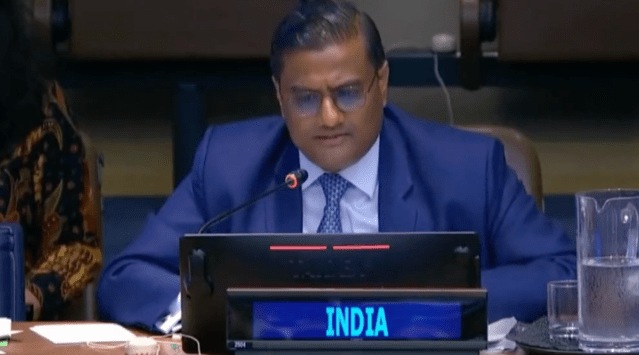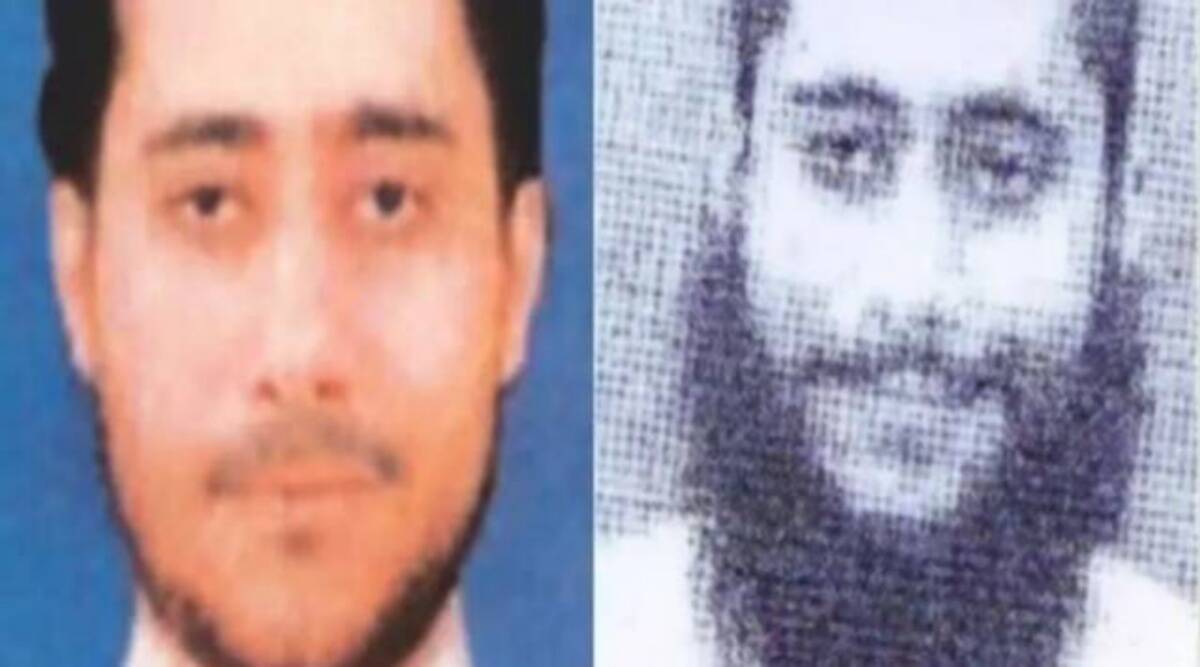China had on Tuesday blocked a proposal moved by the US and co-designated by India to blacklist Mir under the 1267 Al Qaeda Sanctions Committee of the UN Security Council as a global terrorist and subject him to assets freeze, travel ban and arms embargo.

 On Tuesday, (June 20) China blocked the proposal to blacklist Mir, a Pakistani, under the 1267 al-Qaeda Sanctions Committee of the UN Security Council as a global terrorist and to subject him to sanctions. Beijing had put a hold on the proposal in September last year. (Photo: FBI)
On Tuesday, (June 20) China blocked the proposal to blacklist Mir, a Pakistani, under the 1267 al-Qaeda Sanctions Committee of the UN Security Council as a global terrorist and to subject him to sanctions. Beijing had put a hold on the proposal in September last year. (Photo: FBI)
India’s senior diplomat Prakash Gupta, joint secretary who heads the UN Political division at the Ministry of External Affairs in New Delhi, played the sound file recorded even as the 26/11 terror attacks were unfolding. “This is Sajid Mir directing the terrorists – on phone – to hunt down foreigners at the Taj Hotel and kill them indiscriminately,” he said, while addressing the High Level Conference on Counter Terrorism at the UN in New York.
In a thinly-veiled reference to Beijing, Gupta said, “The mastermind of the Mumbai terror attacks Sajid Mir was listed as a proscribed terrorist under the national laws of India, of the United States, and of several other countries, but when the proposal for listing Sajid Mir did not get through the Global Listings of the UN Security Council Sanctions Regime despite several member states co-sponsoring it, we have righteous reasons to believe that something is genuinely wrong with the global counter terrorism architecture.”
“If we cannot get established terrorists who have been banned across global landscapes proscribed by the United Nations – for petty geopolitical interests – then we really do not have the genuine political will to sincerely fight this challenge of terrorism,” he told the UN delegates.
“In this day and age of accountability and transparency, can evidence-based listing proposals be blocked without giving any reason?” Gupta asked.
Gupta rued that 15 years after the Mumbai terror attacks, its masterminds in Pakistan have not yet been brought to justice.
“The first gap that we feel we need to plug, therefore, is in the sanctions regime itself and see how do we improve its working methods to secure this successful listing of genuine, objective evidence-based proposals,” he said.
Story continues below this ad
Connecting the terror attacks in New York and Mumbai, he said, “While 9/11 terror bombings in this iconic city of New York changed the landscape of the global counter terror architecture, the 26/11 Mumbai terror attacks shook the collective conscience of world’s largest democracy.”
“Ten fully armed assailants from across our borders, well trained in conducting urban warfare, descended on our shores and wreaked havoc over three days, that resulted in 166 innocents being killed, that included 26 foreign nationalities,” he said.
“15 years after the Mumbai terror attacks, its masterminds have not yet been brought to justice. Some of them continue to roam scot free – with full state hospitality,” he said.
“So the first and the most critical gap – we feel addressing is: avoiding double standards and this self-defeating justification of good terrorist vs bad terrorists. A terror act is a terror act – period – any justification being used should not be countenanced upon by anybody,” he said.
Story continues below this ad
A key operative of LeT, Mir is one of India’s most wanted terrorists. Said to be in his 40s, he has a bounty of USD 5 million placed on his head by the US for his role in the 26/11 terror attacks. Curiously, Mir had been declared dead by Pakistan authorities a few years ago. However, when the US and other Western countries began seeking evidence of his death from Pakistan, Islamabad found him to be alive and duly arrested him.
In June last year, Mir was jailed for over 15 years in a terror-financing case by an anti-terrorism court in Pakistan. Lack of action against Mir was one of the issues flagged by the international body against terror financing, the FATF, while assessing Pakistan’s progress on the action plan late last year.



 On Tuesday, (June 20) China blocked the proposal to blacklist Mir, a Pakistani, under the 1267 al-Qaeda Sanctions Committee of the UN Security Council as a global terrorist and to subject him to sanctions. Beijing had put a hold on the proposal in September last year. (Photo: FBI)
On Tuesday, (June 20) China blocked the proposal to blacklist Mir, a Pakistani, under the 1267 al-Qaeda Sanctions Committee of the UN Security Council as a global terrorist and to subject him to sanctions. Beijing had put a hold on the proposal in September last year. (Photo: FBI)





